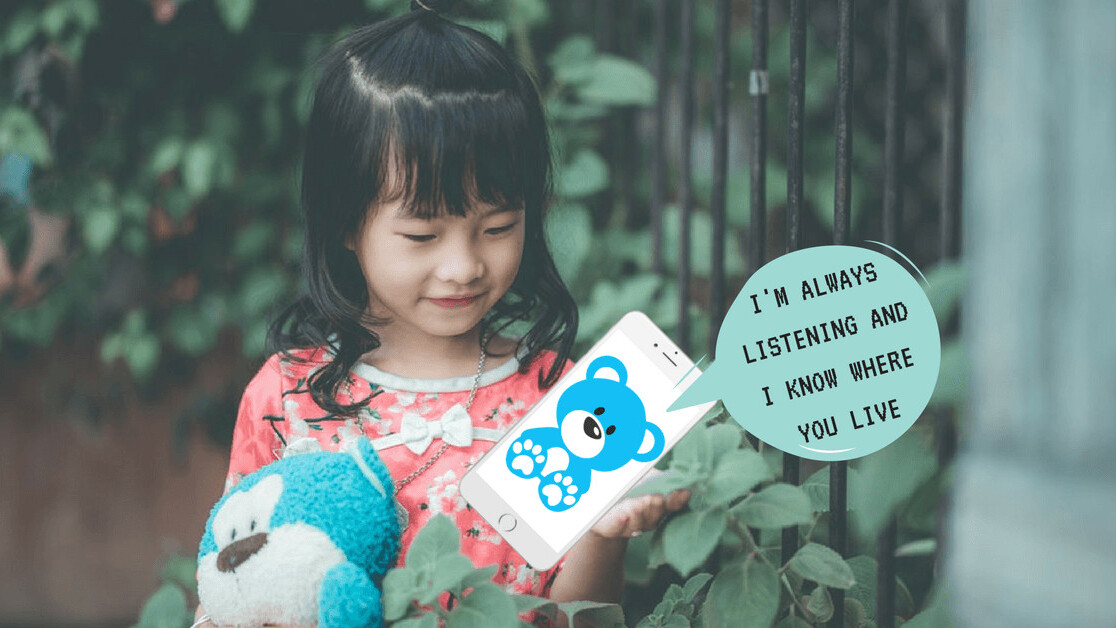
Not so long ago, kids played with things like building blocks, jump ropes, and Etch-A-Sketches. Those still exist, but now, many toys for kids are as high-tech as the gadgets their parents use.
These smart toys often have features designed to keep kids fascinated — like lights, sounds, or interactive games. And parents might understandably use them to keep youngsters quiet, especially in public places, or when relatives visit the house.
But what’s the cost of having less-fussy kids with help from tech?
Wi-Fi and Bluetooth-enabled toys are vulnerable to hacks
Many smart toys feature built-in Wi-Fi connectivity.
It’s supposed to offer conveniences, such as the ability to download new content instantly or connect two Wi-Fi-enabled devices and let them work together.
However, it’s crucial to examine the downsides of such features. Some of the dangers associated with Internet-connected toys include the possibility of hackers breaking into the toys and listening to what kids say.
Then, they could learn details like names, ages and favorite things, and could theoretically use the information to prey upon kids in real life and convince them strangers are safe.
A hacked smart toy could even talk back to kids, which was the case with the Teksta Toucan toy after cybersecurity researchers hacked into it and made the gadget play a recording full of swear words.
Security researchers also orchestrated a situation where a stuffed cat with message recording and playback features placed an order with an Amazon Echo smart speaker.
It’s also worth noting hackers sometimes target smart toy manufacturers. If that happens, the resultant data breaches leak private information.
When that occurred at VTech Electronics, the toy maker got fined $650,000 following charges of violating the Children’s Online Privacy Protection Act (COPPA) and not appropriately securing collected data.
App developers don’t always follow privacy regulations for minors
Many smart toys have accompanying apps. Typically, those applications provide additional information that makes the toy more fun or interactive. Plus, many toys won’t work without their apps.
Parents might assume the developers that make those apps have the target market in mind and make privacy a priority. But, that’s unfortunately not always the case.
A study of nearly 6,000 Android apps found more than half of them potentially violated COPPA.
Some of the apps of concern shared location or contact details without consent, gave identifying information to third-party advertisers or did not follow contractual obligations meant to protect kids’ privacy.
What information can hackers learn from location-tracking toys?
Smart toys often have location-tracking features, which could reveal a child’s whereabouts to a kidnapper.
Sometimes, that can happen in ways people never consider. If a toy has Bluetooth connectivity, for example, anyone who is also in the range of the Bluetooth signal could see the toy show up on a list of compatible devices when pairing something else that offers Bluetooth.
They could then assume, probably correctly, there’s a child nearby.
Using location-based apps responsibly requires parents to determine whether kids are mature enough to access them, then set rules for how and when to interact with the apps.
Smart toys could hinder a child’s development
A report about the reduction of unstructured play over time reveals that when adults don’t encourage kids to initiate playtimes themselves, they may have developmental shortcomings related to problem-solving, flexibility, and coping skills.
All those things are essential for thriving throughout later years of life, but smart toys may not necessarily cultivate them.
For example, many games associated with smart toys have set parameters, making flexibility unnecessary. They also may overly guide kids, rather than forcing them to solve problems on their own.
Plus, smart toy interactions often don’t require people to participate with others and learn valuable interpersonal skills.
Instead, a child can play alone with a toy for hours and never interact with another human except, perhaps, when a parent says it’s time to stop playing and come to the dinner table.
The detrimental effects of too much screen time at a young age
Smart toys often introduce kids to gadgets they’ll likely use when they’re older, like smartphones and tablets. Manufacturers offer special versions made for kids, letting them feel like grown-ups.
However, those toys could also get kids addicted to screens. Research indicates when youngsters get too much screen time, it adversely affects their physical and mental health.
In one study, brain scans showed reduced development in the areas dedicated to cognition and language in children who took part in large amounts of screen time versus those who read books.
Smart toys might encourage obesity
Most smart toys involve sitting in one place to interact, so kids don’t have to run around or otherwise do things that could help them stay physically healthy.
Playing with smart toys too much could put children at risk for becoming obese, especially if they realize they can get enjoyment without having to be active.
Researchers say preventing childhood obesity is not only about diet and exercise in general. It also involves making sure kids take part in the kinds of activities likely to help them stay fit and encourage them to move.
Keeping a balance
Despite the convenience smart toys offer, many informed parents may wisely decide they aren’t worth the risks.
As the high-tech diversions become increasingly popular, they’ll likely become even more appealing to hackers and other people who want to use toys to carry out wrongdoings towards unsuspecting little ones.
Plus, if the companies making the toys care about profits above all else, they might sacrifice privacy precautions that keep kids’ data safe.
And, there are the worrisome health and development outcomes to consider, too.
If caregivers do choose to let kids play with connected toys, supervision is essential.
Additionally, adults should limit the amount of time children spend with smart toys in favor of more unstructured play that encourages kids to explore their worlds and use their imaginations.
This story is republished from TechTalks, the blog that explores how technology is solving problems… and creating new ones. Like them on Facebook here and follow them down here:
Get the TNW newsletter
Get the most important tech news in your inbox each week.





